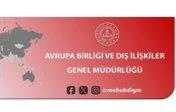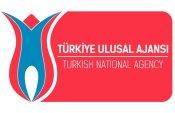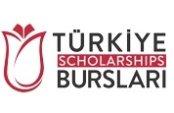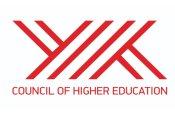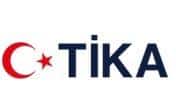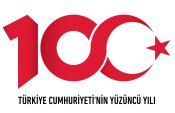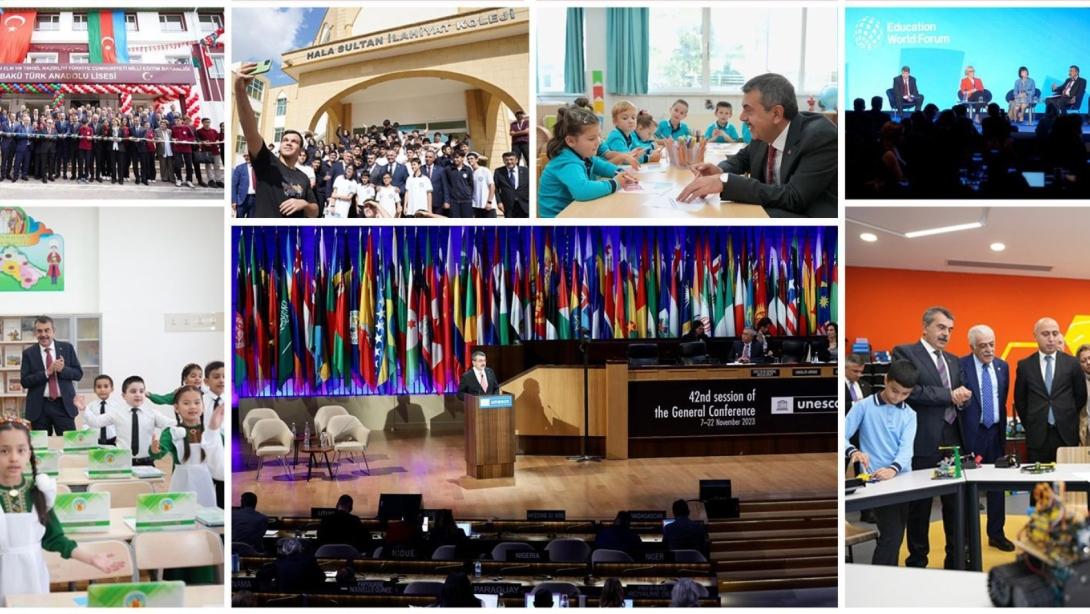
Educational Diplomacy in Türkiye's Global Journey
The greatest wealth that leaves a lasting mark in the universe is knowledge. Knowledge is the truth rooted in the human mind, while education is the strongest bridge that carries this truth from one generation to another. In every era, education has been more than information; it has been the foundation of peace, justice, and a shared vision of humanity.
With this awareness, our Ministry sees education not only within our borders but also as a main responsibility for building the common future of humanity. This responsibility also guides our country's foreign policy vision in line with the needs of our time.
In the 21st century, the direction of international relations has changed. The world order based only on hard power is left behind. Hard power may open doors, but it is soft power that keeps them open. From this perspective, the most effective tool in today's order is "educational diplomacy," which can touch both hearts and minds at the same time.
While practicing educational diplomacy, Türkiye has always respected the independence, state structures, and national choices of every country. In no place do we act with a post-colonial mindset; our activities are shaped not by hidden agendas but by sincerity and a spirit of cooperation. For us, the relationships we build through education are not tools of influence but a service of civilization—strengthening common interests with friendly nations and building bridges of goodwill.
Our Reforms as a Model to the World
With this understanding, together with the Turkish Maarif Foundation, we can say that today we are the institution with the largest representation network abroad after the Ministry of Foreign Affairs. We form the backbone of Türkiye's educational diplomacy with 94 representations in 63 countries, 67 schools ranging from primary to high school in 14 countries (excluding the institutions and staff of the Turkish Maarif Foundation), more than 2,000 teachers and 120 lecturers working abroad. This backbone is becoming stronger with 348 agreements signed with 125 countries, joint projects carried out with friendly nations and international organizations, and the mobility of students and teachers we send abroad for educational purposes.
On the other hand, the Turkish language and culture courses we provide abroad under the agreements signed are also a concrete manifestation of our country's vision of transparent cooperation. The educational sciences literature confirms this approach, revealing that children who learn their core values adapt to society without assimilation and develop greater psychological resilience.
I believe that our educational diplomacy activities, which aim to build stronger and deeper ties with the world, have gained significant momentum in recent years. By increasing its international educational and promotional activities, Türkiye has entered the group of leading countries in education with its unique model, practices, and digital solutions. The progress recorded in research such as PISA and TIMSS is also the most concrete proof of this rise. This rise forms the driving force of our educational diplomacy efforts.
Some countries closely follow Türkiye's reforms and achievements in education and request our support in these areas. Seeing that our educational reforms are taken as an example in many parts of the world, starting from our own region, gives me great satisfaction.
The Human Factor and Common Vision in Educational Diplomacy
Our educational diplomacy activities are not limited to physical spaces and institutions. Through digital platforms developed by our Ministry, such as EBA (Education Informatics Network), HEMBA (Lifelong Learning Informatics Network), EPALE (European Platform for Adult Learning), and Ülkem Yanımda, we can now reach not only our citizens inside Türkiye but also those living abroad, our kinsmen, and friendly communities. These platforms both respond to the needs of our age and make Türkiye's digital education capacity visible on a global scale.
Educational diplomacy, with all its institutions, projects, and platforms, ultimately gains meaning through the human factor. Our teachers and instructors serving abroad within our Ministry and all partner institutions are the embodied pioneers of our country's approach to educational diplomacy. The spirit of education is reflected in the teacher's perspective and stance. Beyond our borders, they are not only educators but also act as educational diplomats. Through the activities they join, the lessons they teach, and the generations they raise, they embody our country's vision, help break down prejudices, and build bridges of friendship. In this way, they carry Türkiye's cultural and values-based vision into practice in the field.
Since the early years of our Republic, scholarship students have also been carriers of this tradition. With the scholarship program No. 1416, in force for 95 years, young people are sent abroad for postgraduate education through the YLSY program (Selection and Placement of Students to be Sent Abroad for Graduate Studies). Today, they return equipped in many strategic areas, from artificial intelligence to nanotechnology, and contribute to our country's development. The fact that 58% of all students benefiting from this scholarship were sent abroad only in the last 22 years, and that in recent years they have been directed especially to key fields of the future, clearly shows that educational diplomacy is among the main priorities on our agenda.
Our country's educational diplomacy activities are not limited to the efforts of our Ministry alone; they are also the common vision reflected in the activities of partners such as the Turkish Maarif Foundation, YTB, TİKA, the Presidency of Religious Affairs, and the Yunus Emre Institute.
One of Türkiye's most important institutions in the field of soft power, working in close cooperation with us, is the Turkish Maarif Foundation. With 508 schools in 56 countries, 2 universities, 14 education centers, 12 research centers, and 58 dormitories, the Foundation reaches more than 60,000 students. With its students and graduates, it stands out successfully in international science olympiads, art competitions, and global university admissions lists, contributing to the human and intellectual capital of the host countries.
Voluntary Cultural Ambassadors
Likewise, the Yunus Emre Institute is one of our most strategic institutions in the field of language and cultural diplomacy. Today, with 93 cultural centers in 68 countries, the Institute strengthens Türkiye's bridges of friendship. It has gained a special place in the world not only through cultural activities but also with its internationally recognized Turkish language teaching. Since 2013, the Turkish Proficiency Exam implemented by the Institute has received the Q-Mark approval from the Association of Language Testers in Europe (ALTE), becoming the first international exam where our country raised its flag in the field of language diplomacy. This leadership was continued by our Ministry, as the Turkish Four Skills Exam developed by us also received the ALTE mark, raising Türkiye's position in this area even higher.
The Presidency for Turks Abroad and Related Communities (YTB) is one of the key actors in the field, not only with its scholarship programs but also through projects, cultural activities, educational support, and social initiatives. So far, more than fifty thousand students have studied in Türkiye thanks to Türkiye Scholarships, and many of them have become voluntary cultural ambassadors for our country when they returned home. Moreover, through initiatives such as YTB's 'Turkish Hour,' efforts are made to leave a lasting impression of the Turkish language on the memory of nearly thirty thousand children across fifteen countries and to foster a sense of cultural belonging in their hearts.
As a complementary actor to the educational initiatives carried out by our Ministry, TİKA also makes its strong presence felt in the field. Active in more than 170 countries, TİKA not only builds modern schools but also supports teacher training programs and provides educational materials. While extending Türkiye's helping hand to those in need, it also contributes to the deepening of our bilateral relations on the basis of friendship and trust.
The Key to Building a Fair World
Another institution with strong representation abroad is the Presidency of Religious Affairs of Türkiye. With 75 counsellor offices and 54 attachés, the Presidency serves our citizens and kinsmen abroad, helping them preserve their national and religious identity and pass it on to future generations.
We see education not as a tool of hegemony, but as the key to building a fairer world. For this reason, educational diplomacy has become the most effective instrument of our soft power. Yet this power produces meaningful results not through individual efforts but through institutional coordination. The Ministry of National Education is the main authority that determines and implements education policies both at home and abroad for a more effective practice of educational diplomacy. Therefore, it is not only an administrative choice but also a strategic necessity for all stakeholders to act in harmony with our Ministry.
The guiding principle of our work, which will bring valuable contributions to our region and to the world at large, is clear. This compass is the "Türkiye Century Education Model" (Türkiye Yüzyılı Maarif Modeli), launched last year with a unique and holistic approach built upon years of groundwork. This model combines core values with the skills of our age and is in full harmony with the educational diplomacy we carry out abroad. Its global outcome will be a language of cooperation that protects the balance between identity and adaptation, unites knowledge with virtue, and avoids imposition or coercion. Through this language, Türkiye's civilizational voice will resonate worldwide via educational diplomacy—touching hearts and leaving a lasting mark on minds.



